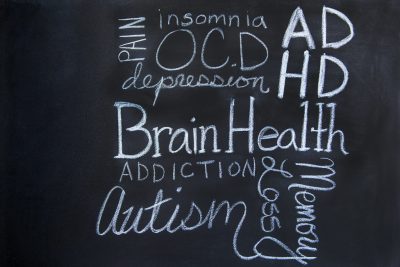The term “neurodivergent” — meaning atypical neurodevelopment — was first coined in the late 1990s by Judy Singer, a sociologist and international speaker who is on the autism spectrum.
She first used the word “neurodiversity” in her thesis to normalize atypical development as differences, not deficits.
Some of the more commonly recognized types of neurodiversity include autism spectrum disorder, obsessive-compulsive disorder, dyslexia, ADHD and Asperger’s Syndrome. With no explicit confines on the term, some information sources also include depression, anxiety and bipolar disorder under neurodiversity.
In more recent years, particularly among Generation Z, there has seemingly been an emphasis on using the correct expression to represent people in the most respectful and intentional way possible.

With Gen Z on track to be the best-educated generation yet, part of our education has been being much more intentional about terms regarding identity in our vocabulary — whether that be gender, sexuality or even neurodivergence.
Sometimes, this conversation can quickly become intense, with infographic overloads on social media and cancel culture being rampant.
But when not motivated by a social media presence or a pop figure, I can’t help but feel a lack of effort from people to educate themselves on the impact of their words. I think we’ve all accidentally forgotten to refer to someone by their pronouns or made a sarcastic comment about “wanting to die” on a particularly tough week. Yet, the increasing relevance of both sensitive expression and cancel culture begs the very important question — are these comments okay?
I’ve heard it all before in casual conversation. Someone says they’re “so OCD” when it comes to cleaning their desk. Someone says, “I swear I’m dyslexic,” when they trip on a word while trying to read. When trying to focus on homework and failing, apparently “it’s ADHD.”
The same one-off comments are made about mental illness. A mood swing is jokingly called “bipolar.” Others say they “get anxiety.” People use these terms trusting that others will understand they don’t mean it literally or maliciously, without regard to the individuals who suffer from the conditions. One may argue it’s just a hyperbolic metaphor, but it has a bigger effect than we think. Though often not said maliciously, the lack of sensitivity has made us unaware of the impact our daily conversations can have on neurodivergent people or those truly affected by mental illness.
I feel our generation is two-faced when it comes to the actions we want to take. My shift in perspective began when a close friend who returned from Christmas break told me her sister had been hospitalized for depression. I was in front of someone who had spent their holiday praying, and I was at a loss for words. Suddenly, the importance of being intentional with the words I chose had never been more clear.
Throwing around self-deprecating jokes like wanting to die over the idea of taking a test suddenly seemed enormously insensitive. By thoughtlessly using such language, we contribute to the statistics about the people that go undiagnosed for years, whether it be a mental illness or a learning disability. The words we think we know and say without a second thought belittle the issues that could possibly be affecting the person sitting right next to us.
Now more than ever, people need to understand there is a thin line between hyperbolic speech and trivializing mental health issues. The informality with which we throw around words can be seen as a rejection of empathy.
It’s been said for so long about so many different things, but the stigma still needs to be combated. We should be taught better to both understand and respect neurodiversity and mental illness. That includes learning how to help those affected instead of adding to their suffering at the cost of a joke.




















































































































